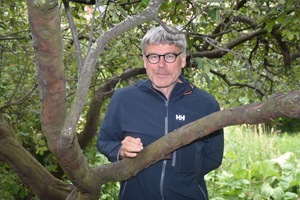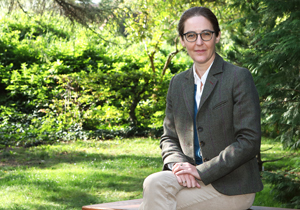Research in biodiversity and biomass receives a boost of 120 million DKK
Will inoculating of former arable land with soil from old forests make establishing new forests on agricultural land faster and more efficient? How does oxygen contribute to the enzymatic breakdown of carbohydrate in the plant cell wall, thus enabling fungi to absorb nutrients? Two projects from the Department of Geosciences and Nature Resource Management will investigate these subjects, with funding from the Novo Nordisk Foundation.
Increased human activity and the demand for food, materials and other resources in the past century have placed enormous pressure on the Earth’s ecosystems and the species that live in them. This has led to a substantial and continually accelerating decline in the number of species and biodiversity across the globe.
Transplantation of soil from old forest to agricultural soil
Professor Per Gundersen receives 60 million DKK for the project Silva Nova – Restoring Soil Biology and Soil Functions to Gain Multiple Benefits in New Forests. The research will focus on how to use afforestation as an instrument in combatting climate change by sequestering carbon in trees but also how to use the resulting forests as habitats for species that can help to strengthen biodiversity.
The project will investigate whether inoculating former arable land with soil from old forests will make establishing new forests on agricultural land faster and more efficient. The hypothesis is that microorganisms that benefit tree growth are not present in agricultural land and that transplantation can establish the right microbiome to support and accelerate forest restoration.

“When we plant trees in a field, a forest eventually grows. However, soil processes, the microbiome and plant communities continue to resemble fallow land. Regenerating the soil to support forests may thus take centuries. Our project will explore the transition from field to forest and find methods to turbocharge this development to benefit biodiversity and the environment. In Denmark, we have a plan to double the forest area. This is a massive project that will change the landscape. This generous grant for research on afforestation will ensure that, if all goes well, society will reap additional benefits from the plan,” says Per Gundersen.
Focus on fungal feeding habits
Professor Katja S. Johansen receives 59.9 million DKK for the project Oxygen Constraints on Microbial Secretomes during Plant Cell Wall Turnover (OxyMiST). The project that will discover new knowledge on fungal degradation of biomass, one of the tools to exploit waste and biomass residue in the green transition. Obtaining more complete knowledge about this process is relevant because microbial conversion of biomass is a tool we need to use to exploit waste and biomass residue in the green transition and because fungal feeding habits comprise a significant part of the carbon cycle in nature and therefore strongly influence global climate. The project will especially focus on how microorganisms directly or indirectly utilize the oxygen in the air together with their enzymes.

“The OxyMiST consortium will investigate how oxygen influences the secretion of enzymes by fungi and the enzymatic processes. So far, we have only seen a snippet of what appears to be a rather complicated picture. This will be really exciting!” says Katja S. Johansen.
The project provides an opportunity to improve understanding of an important process in nature. In addition, the results can strongly influence our use of enzymes in other contexts, such as in industry, in which enzymes are used to produce a wide range of products such as fuel, materials and food.
About the Novo Nordisk Foundation Challenge Programme
The Novo Nordisk Foundation Challenge Programme was established in 2014. Since then, the Foundation has awarded more than DKK 100 million every year for ambitious research projects that focus on global challenges based on annually selected research themes. The Foundation has just opened for applications for the 2021 Challenge Programme, focusing on how cross-disciplinary research can solve the challenges of tomorrow related to disease and food.
